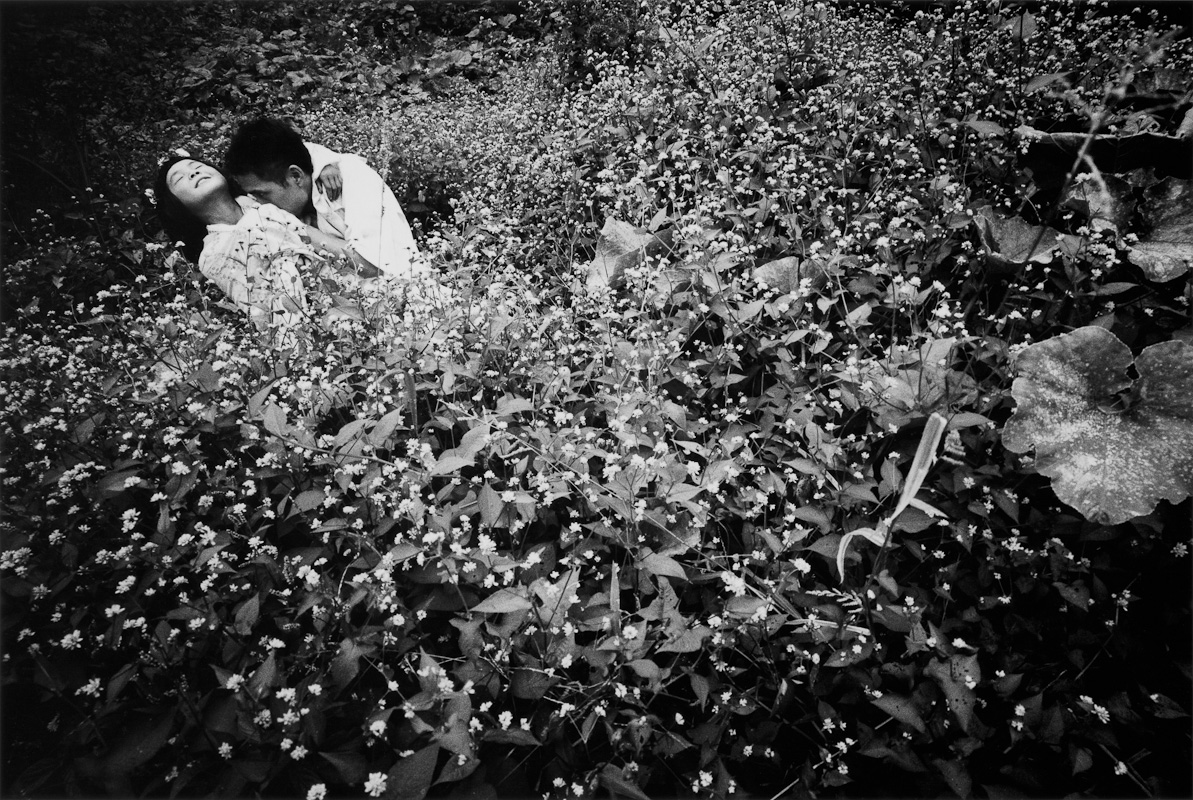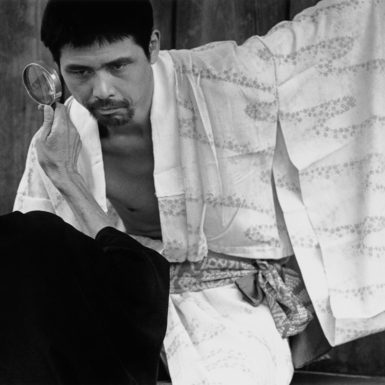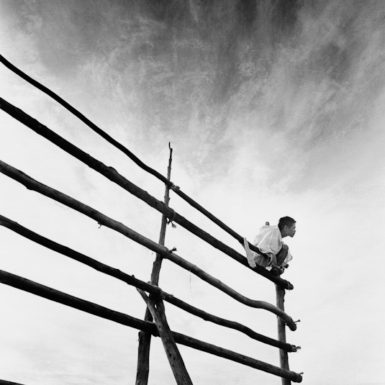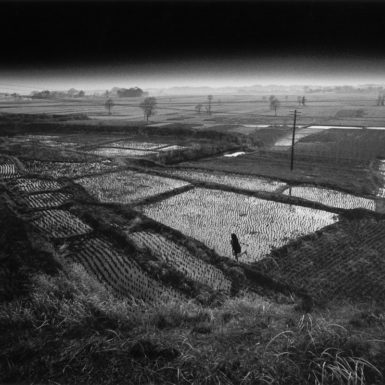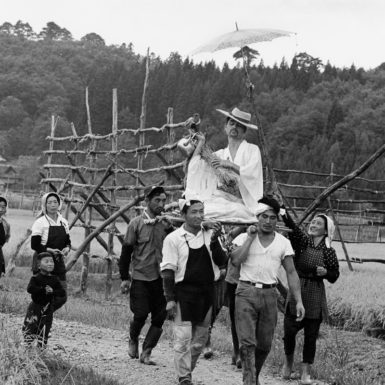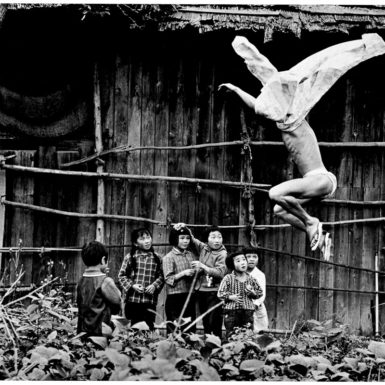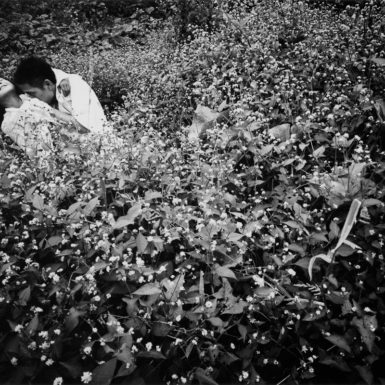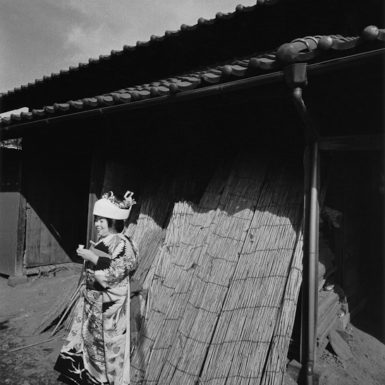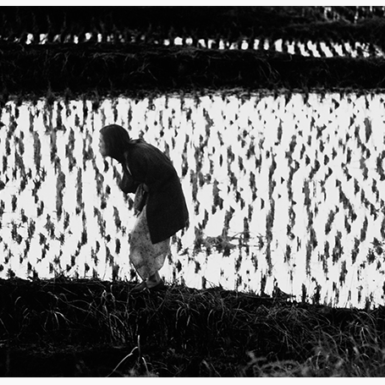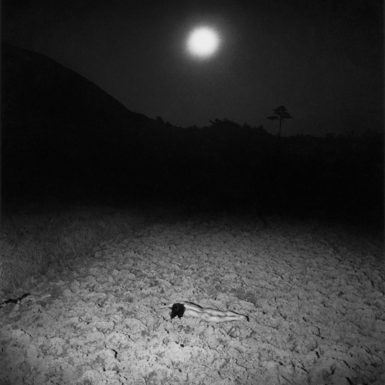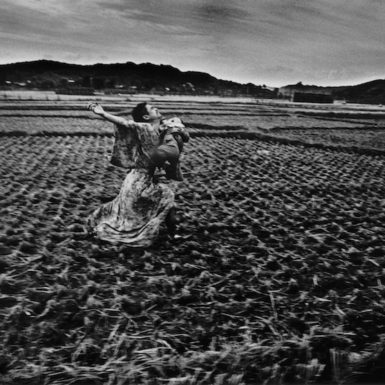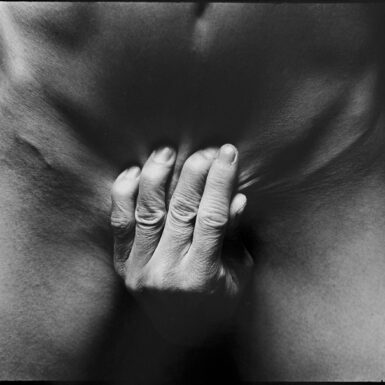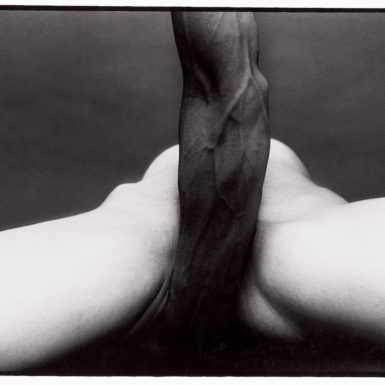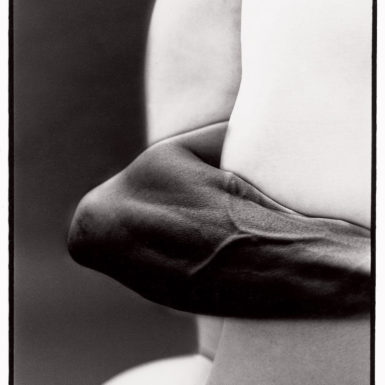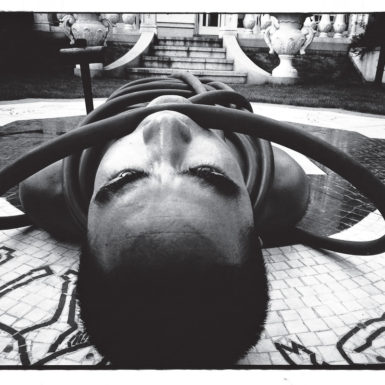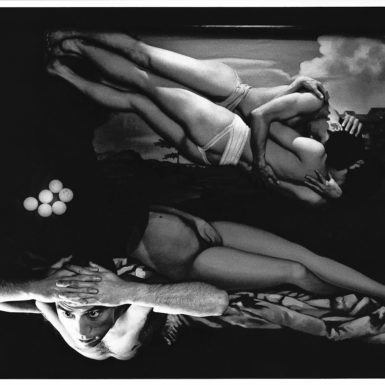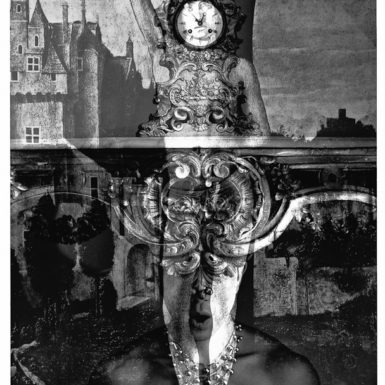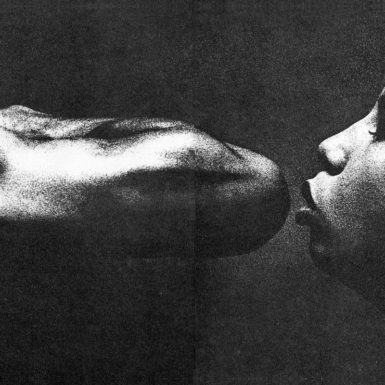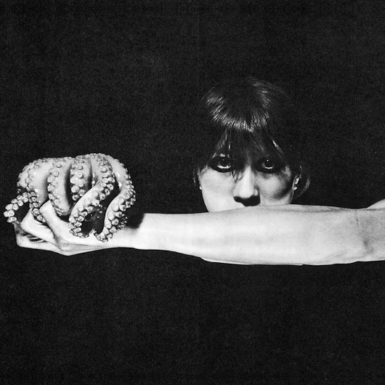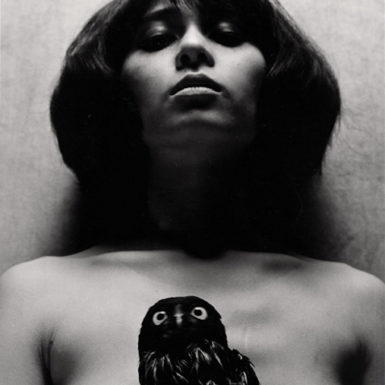Gallery
BIoGRAPHY
For over fifty years, internationally-acclaimed photographer Eikoh Hosoe has been producing cutting-edge works demonstrating a unique mastery of the photographic medium. Early on in his career, he abandoned the documentary style prevalent in the post-war years and produced work that breathed a sense of experimentation and freedom into photography. By calling on mythology, metaphor and symbolism, his images break the bounds of traditional photography.
Hosoe developed a unique style, situated at the crossroads of several different art forms, combining photography with elements of theatre, dance, film and traditional Japanese art. To this day, he continues to push the boundaries of photographic expression.
Hosoe began to gain recognition in the late 1950s with the series Man and Woman (1959). Through the writer Yukio Mishima, Hosoe was to meet Tatsumi Hijikata, one of the founders of Butoh dance. From the beginning of his career, Hosoe has been linked to and inspired by Butoh. This revolutionary performance movement formed in the post-war years, integrating elements of German expressionism and Japanese dance to search for a new social identity in the wake of defeat. After seeing Hijikata’s performance adapted from the novel Kinjiki (Forbidden Colours) by Yukio Mishima in a small Tokyo theatre, Hosoe was inspired and he began photographing the Butoh dancer, a collaboration which continued for many years.
In September of 2024 Hosoe passed away at the age of 91.
1933 Born in Yonezawa, Yamagata.
1954 Graduates from Tokyo College of Photography.
1956 First solo exhibition, American Girl in Tokyo, achieves great success.
1957-59 Invited to take part in Junin-no-me (Eyes of Ten), an exhibition held by Tatsuo Fukushima in Tokyo showcasing new photographic approaches and aiming to “sever ties with established photography.”
1960 Founds Vivo with Kawada Kikuji, Sato Akira, Tanno Akira, Narahara Ikko and Tomatsu Shomei. The group was short-lived (it disbanded in 1959) but had a profound impact on photography in Japan at the time.
1961-63 Shoots a series of portraits of the novelist Mishima Yukio forming the series Barakei (Killed by Roses) which is first published in 1963.
1965-68 Collaborates on the Kamaitachi series with the founder of Butoh dance, Hijikata Tatsumi. The series is taken in the region from which Hosoe and Hijikata originate.
1975 Offered professorship at Tokyo College of Photography and helps to begin their fine art photography collection.
1976-84 Works on a series of photographs of the architecture of Gaudi, resulting in the publication of The Cosmos of Gaudi, including drawings and poems by Joan Miró.
2003 Photographs the series Ukiyo-e Projections at the Asbestos dance studio before it closes.
2009 Aperture issues a new edition of the seminal book Kamaitachi.
AWARDS | Recognitions
SELECTED SOLO EXHIBITIONS
2015 Another Language: 8 Japanese Photographers, Les Rencontres d’Arles, France
2013 Eikoh Hosoe: Curated Body 1959-1970, Miyako Yoshinaga Gallery, New York
2011 Eikoh Hosoe – Fotografien, CLAIRbyKahn, Munich
2010 Eikoh Hosoe: Theatre of Memory, Japanisches Kulturinstitut, Cologne
2008 Hosoe Eikoh and Butoh: Photographing Strange Notions, LACMA, Los Angeles
2006 Spherical Dualism of Photography: The World of Eikoh Hosoe, Tokyo Metropolitan Museum of Photography, Tokyo
2004 Eikoh Hosoe: Ukiyo-E Projections, Howard Greenberg Gallery, New York
2000 Eikoh Hosoe: Photographs 1950-2000, Yamagata Museum of Art, Yamagata
1990 Eikoh Hosoe: Meta, Houston Foto Festival, Houston
1982 Eikoh Hosoe Retrospective 1960-1980, Musée d’Art Moderne de la ville de Paris, Paris
1973 Eikoh Hosoe, Light Gallery, New York
1969 Man and Woman, Smithsonian Institution, Washington D.C.
1968 Kamaitachi: An Extravagantly Tragic Comedy, Nikon Salon, Tokyo and Osaka
1956 An American Girl in Tokyo, Konishiroku Photo Gallery, Tokyo.
COLLECTIONS
Art Institute of Chicago, Chicago, USA
SELECTED PUBLICATIONS
2021 Eikoh Hosoe, Mack, London
2015 Another Language: 8 Japanese Photographers, IMA Books, Tokyo,
2013 Simmon: A Private Landscape, Akio Nagasawa Publishing, Tokyo
2012 Dance Experience (reprint), Akio Nagasawa Publishing, Tokyo
2009 Eikoh Hosoe: Kamaitachi, Aperture, New York
2007 Deadly Ashes: Pompeii, Auschwitz, Trinity Site, Hiroshima, Madosha, Kyoto
2006 Butterfly Dream, Seigensha, Kyoto
1999 Eikoh Hosoe: Aperture Masters Of Photography, Aperture, New York
1991 Eikoh Hosoe: Meta, International Center of Photography, USA
1986 Eikoh Hosoe: Photographs (Untitled 42), Friends of Photography Bookstore, Carmel, CA
1985 Barakei Shinshuba [Ordeal by roses, reedited], Aperture, New York
1984 The Cosmos of Gaudi, Shueisha, Tokyo
1982 Human Body, Nihon Geijutsu Shuppansha, Tokyo
1971 Embrace, Shashin Hyoronsha, Tokyo
1971 Barakei Shinshuba [Ordeal by roses, reedited], Shueisha, Tokyo
1969 Kamaitachi, [with Tatsumi Hijikata] Gendai-Shichosha, Tokyo
1967 Taka-chan, Norton & Co., New York
1963 Barakei Shinshuba [Ordeal by roses, reedited], Shueisha, Tokyo
1961 Yukio Mishima, [critical essays] Tokyo
1961 Man and Woman, Camera Art, Tokyo
1955 35 mm Snaps, Kogaso, Tokyo

